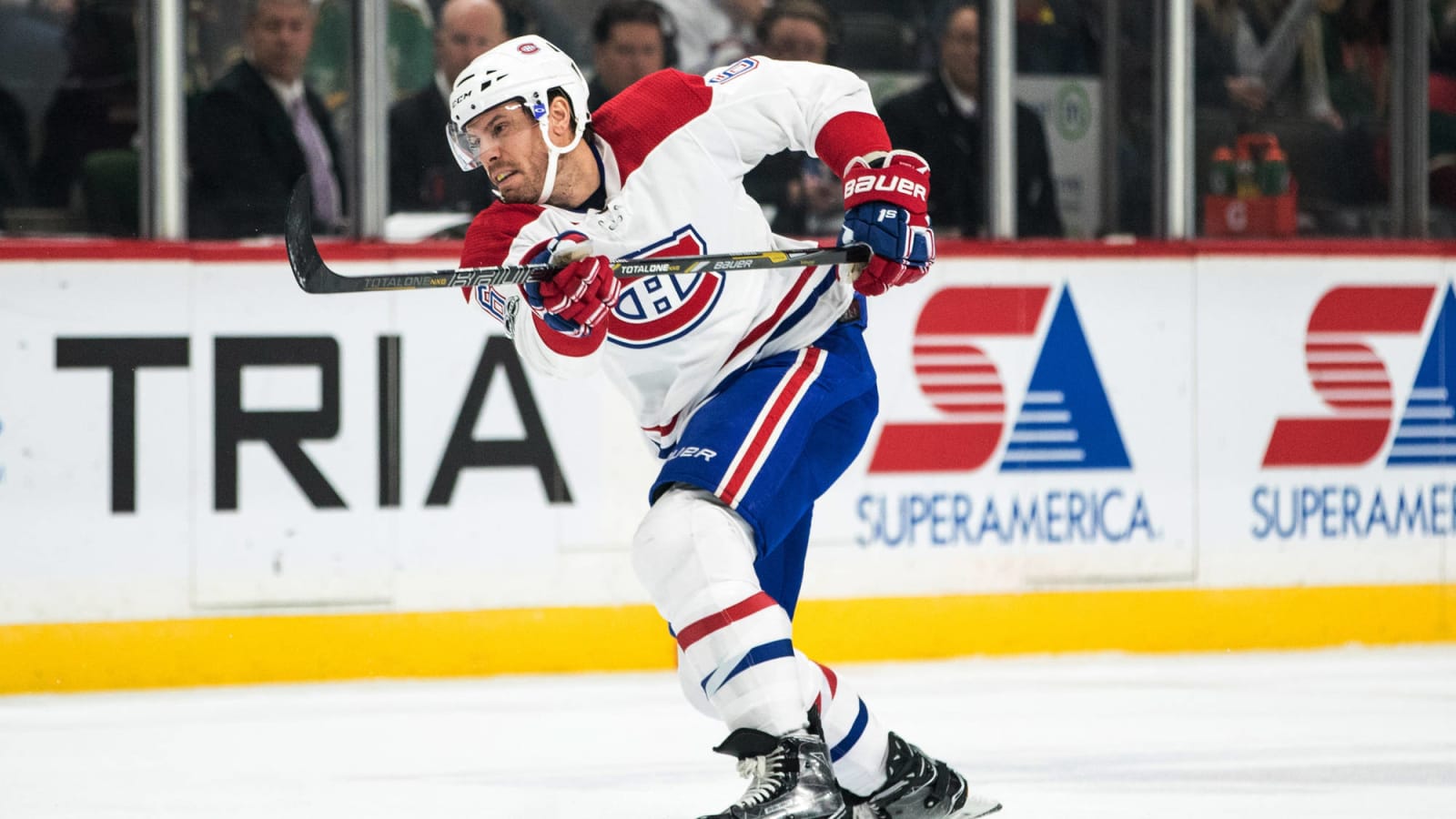
When Shea Weber signed a 14-year, $110M offer sheet from the Philadelphia Flyers in 2012, everyone knew right away that it would end badly. Yes, Weber was 27 years old and one of the top defensemen in the league, but the contract was top-heavy and carried a $7.86M cap hit through his age-40 season. The chances of him playing to a level matching that value over a full 14 years was very slim. The Flyers knew this and specifically structured it in a way that they hoped would scare the Nashville Predators and frugal GM David Poile away – it didn’t. The Predators had just watched Ryan Suter walk in free agency and couldn’t afford to let Weber leave as well. They matched the deal and held on to their superstar defenseman.
When Weber was then traded to the Montreal Canadiens for P.K. Subban in 2016, the risk in Weber’s contract increased exponentially. The league had since banned all similarly long-term contracts – setting a limit of seven years on the open market and eight years for an extension – nevertheless the front-loaded, cap-circumventing type that Weber had signed. To combat teams continuing to front-load contracts, the NHL implemented salary cap recapture penalties. This system punishes teams for lengthening contracts with low-salary seasons in order to lower the cap hit during prime years by issuing a salary cap charge if the player retires prior to the end of the contract, thereby negating the years that lowered his cap hit. The calculation is the difference in total salary and total cap hit over the course of the contract with which the player played with the team, divided by the number of years remaining on the contract after retirement. In Weber’s case, the scenario looks like this:
Year Team Cap Hit Salary Difference
2012-13 NSH $7.857M $14M $6.143M
2013-14 NSH $7.857M $14M $6.143M
2014-15 NSH $7.857M $14M $6.143M
2015-16 NSH $7.857M $14M $6.143M
2016-17 MTL $7.857M $12M $4.143M
2017-18 MTL $7.857M $12M $4.143M
2018-19 MTL $7.857M $6M -$1.857M
2019-20 MTL* $7.857M $6M -$1.857M
2020-21 MTL* $7.857M $6M -$1.857M
2021-22 MTL* $7.857M $6M -$1.857M
2022-23 MTL* $7.857M $3M -$4.857M
2023-24 MTL* $7.857M $1M -$6.857M
2024-25 MTL* $7.857M $1M -$6.857M
2025-26 MTL* $7.857M $1M -$6.857M
So far over the course of Weber’s contract, both Nashville and Montreal have paid him far beyond what his cap hit would suggest. If Weber was to retire today, they would both be penalized. Nashville’s total penalty is $24.572M, while Montreal’s is fluid. However, next season marks a drop for Weber below his cap number for the remaining eight years of his contract. Now, Weber is not going to retire this offseason. However, the chances that he retires early are very high. Earlier this week, it was reported that Weber had undergone a second offseason surgery and would likely be out until midseason. Many expected when Weber was traded to Montreal that he still had many years left of strong play in him, but it appears that the deterioration of his body has already begun. Facing a decreasing salary for the remainder of his contract and concerns about his long-term health, it would be no surprise to see Weber retire in the next two years or so nevertheless by the end of the remaining eight years. By year, here is how the penalties would play out for both Nashville and Montreal:
If Weber retires before: Penalty per year – NSH Penalty per year – MTL
2019-20 $3.51M $918K
2020-21 $4.1M $762K
2021-22 $4.91M $543K
2022-23 $6.14M $215K
2023-24 $8.19M None
2024-25 $12.29M None
2025-26 $24.57M None
Obviously, the Predators have a lot to lose if Weber retires early. It is very unlikely that Weber, if he makes it that far, is likely to retire with one or even two years left on his contract. At that point, it is likely the Canadiens would just place him on long-term injured reserve to finish his career, as has become a growing trend in the NHL. However, if Weber is unable to get over the injuries that have plagued him in Montreal, could he call it quits within the next few years and stick Nashville with a $3.5-$5M yearly penalty? Absolutely. It is a scary possibility for the Predators and a situation worth watching as Weber battles back from injury yet again next season and beyond.
All salary and cap figures are approximations. Data courtesy of CapFriendly.com.
More must-reads:
- Shea Weber out five to six months following knee surgery
- Watch: Avalanche's Artturi Lehkonen stays hot vs. Jets
- The '100 catches in an NFL season' quiz
Breaking News
Customize Your Newsletter
 +
+
Get the latest news and rumors, customized to your favorite sports and teams. Emailed daily. Always free!

